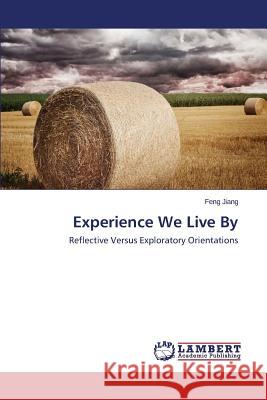Experience We Live By » książka
Experience We Live By
ISBN-13: 9783659511240 / Angielski / Miękka / 2013 / 108 str.
Although experience happens almost every day, little is known about the psychological processes that underlie experience and its effects on higher-level cognitive processes such as judgment and attribution, let alone the potential cultural differences within it. Regarding this issue, a series of questions can be asked by psychologists: Do we prefer to cope with new situations by consulting prior experience or depending upon novel exploration? What is the reason for adopting certain strategies? Is our cultural background involved? In this book, Chinese and American psychological approaches to experience were differentiated in terms of reflective orientation versus exploratory orientation. Chinese ways of understanding experience, considering it as a rigid or closed entity that should always be obeyed and abided by, result in a reflective approach. In contrast, American ways of understanding experience, regarding it as a tool or method to explore the unknown world and to obtain knowledge, result in an exploratory approach. Therefore, this book attempts to unpack cultural influences on representations of experience and elaborate how it affects human beings' judgment.
Although experience happens almost every day, little is known about the psychological processes that underlie experience and its effects on higher-level cognitive processes such as judgment and attribution, let alone the potential cultural differences within it. Regarding this issue, a series of questions can be asked by psychologists: Do we prefer to cope with new situations by consulting prior experience or depending upon novel exploration? What is the reason for adopting certain strategies? Is our cultural background involved? In this book, Chinese and American psychological approaches to experience were differentiated in terms of reflective orientation versus exploratory orientation. Chinese ways of understanding experience, considering it as a rigid or closed entity that should always be obeyed and abided by, result in a reflective approach. In contrast, American ways of understanding experience, regarding it as a tool or method to explore the unknown world and to obtain knowledge, result in an exploratory approach. Therefore, this book attempts to unpack cultural influences on representations of experience and elaborate how it affects human beings judgment.











